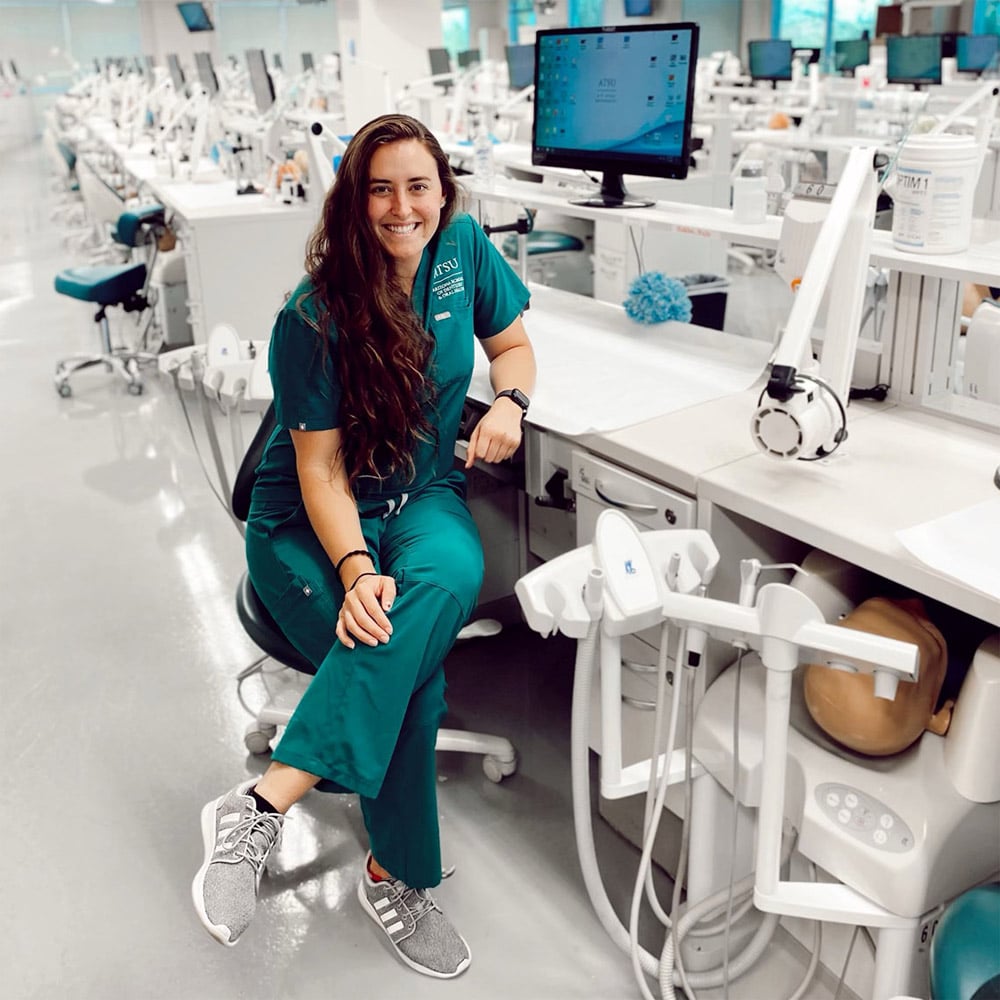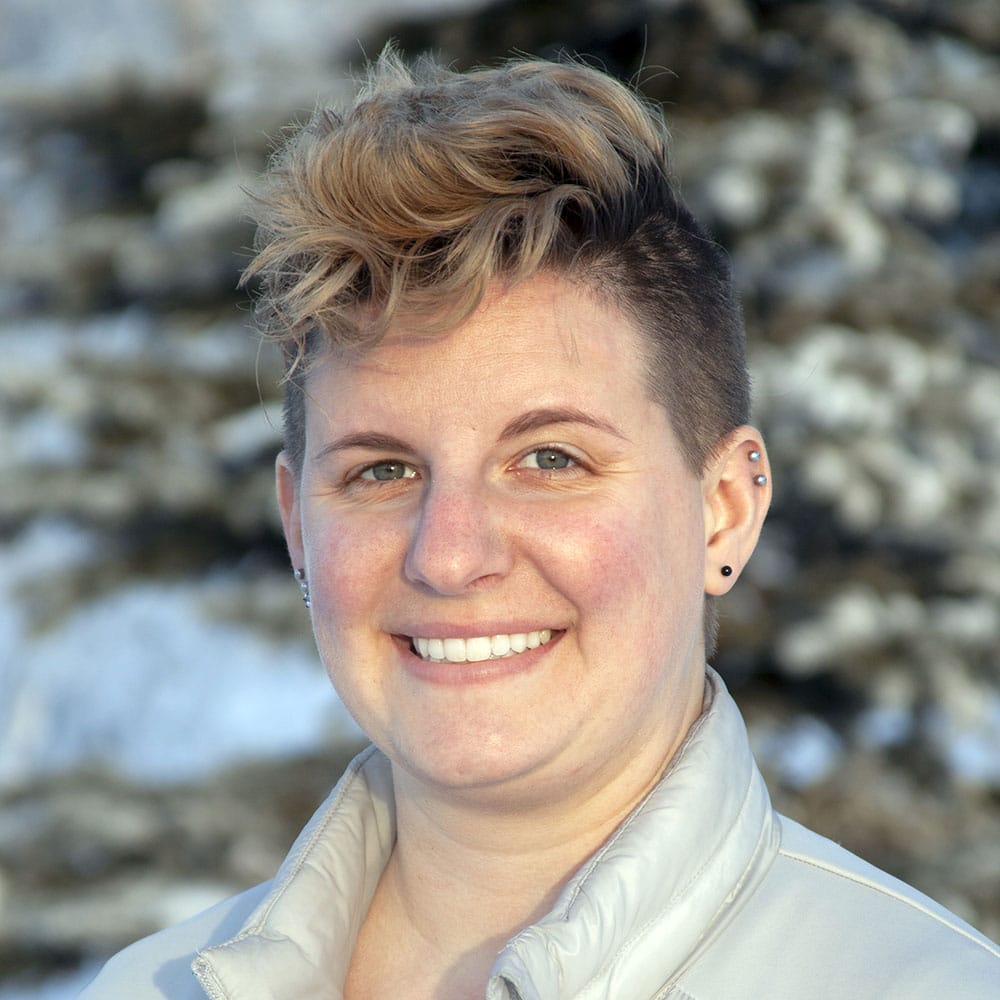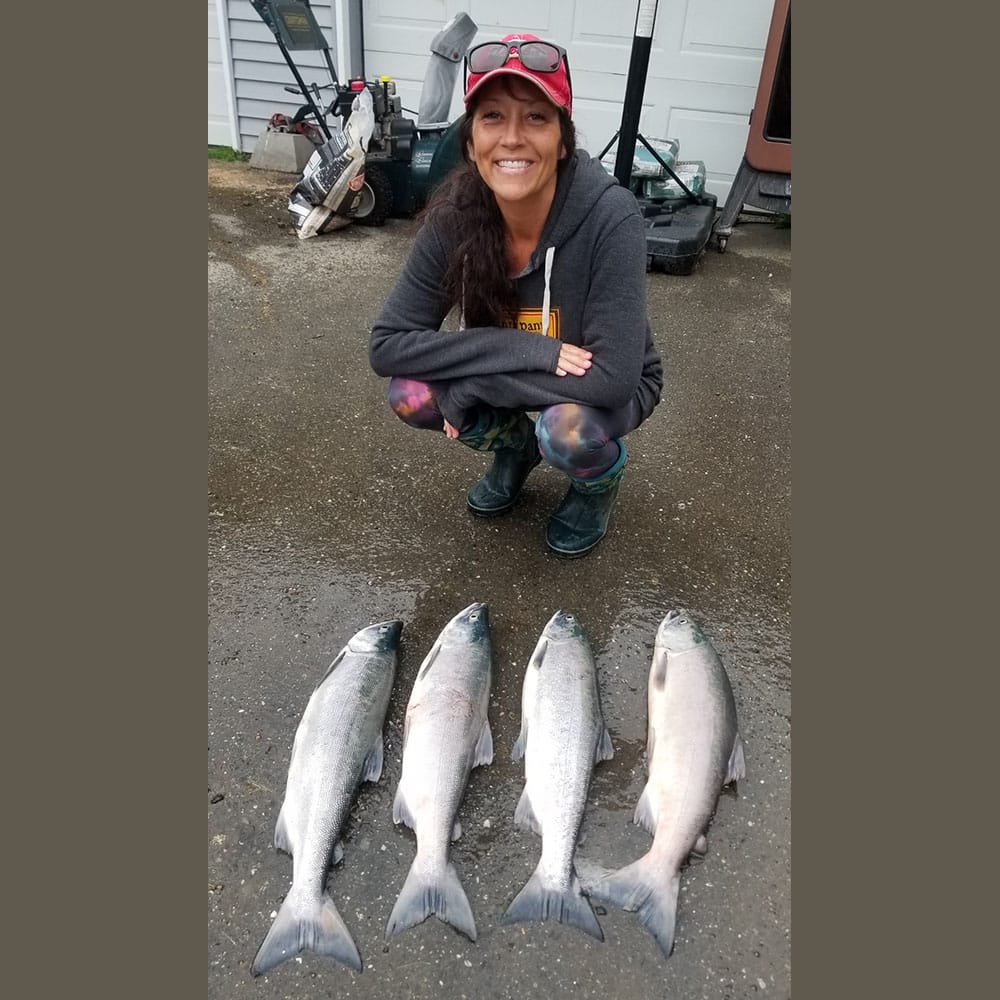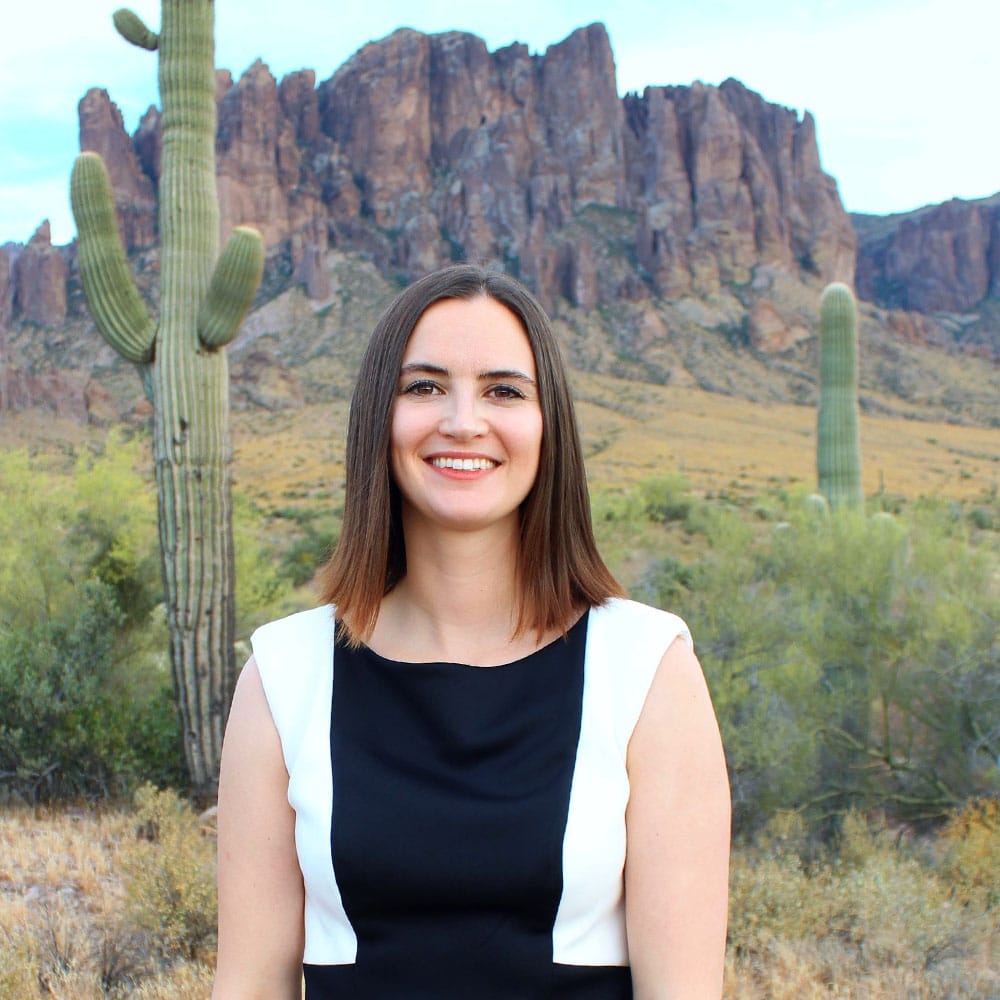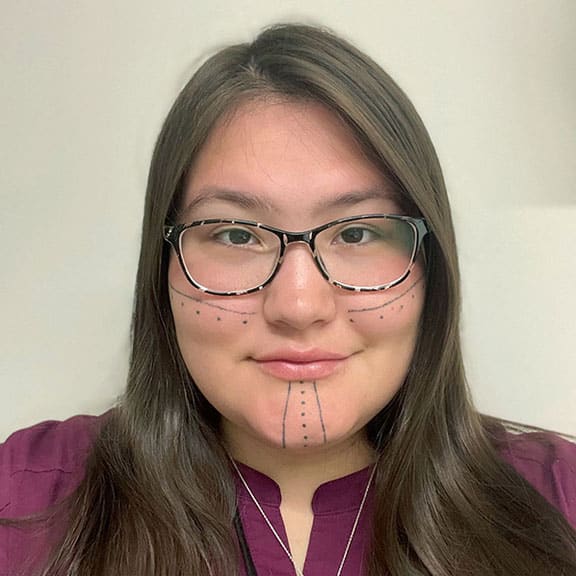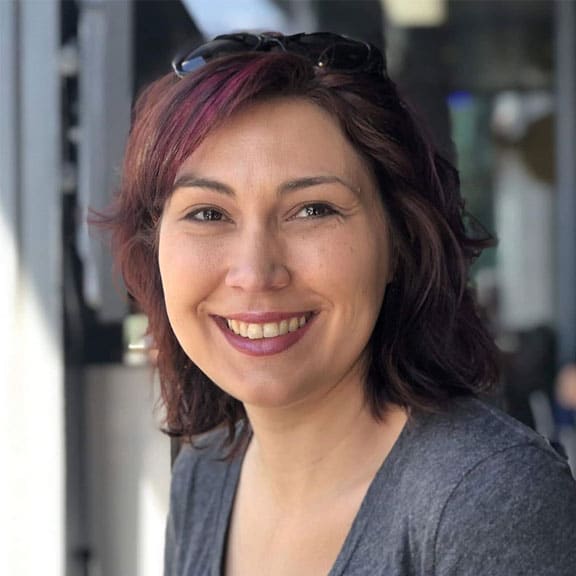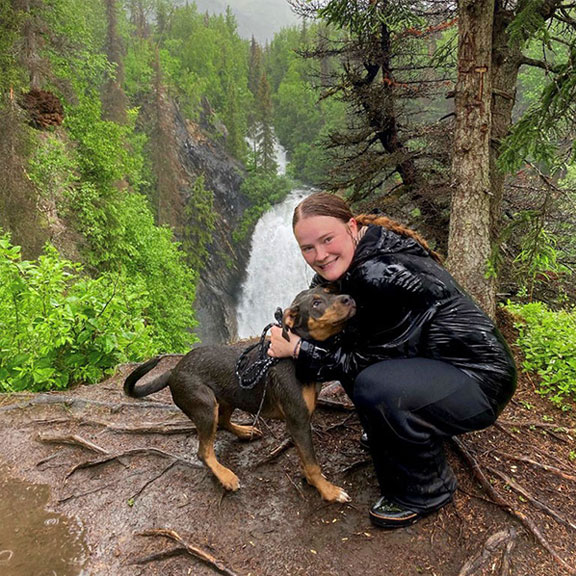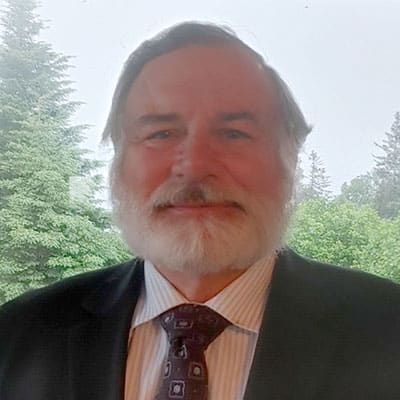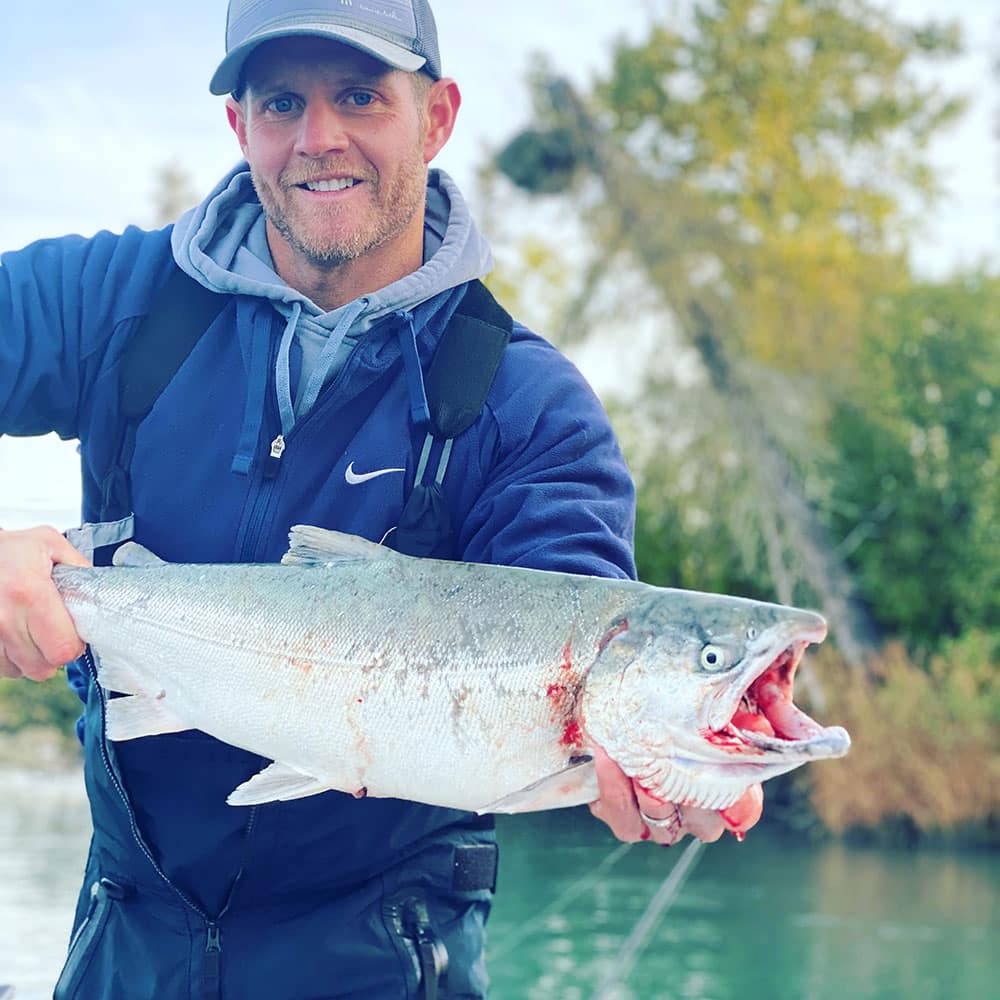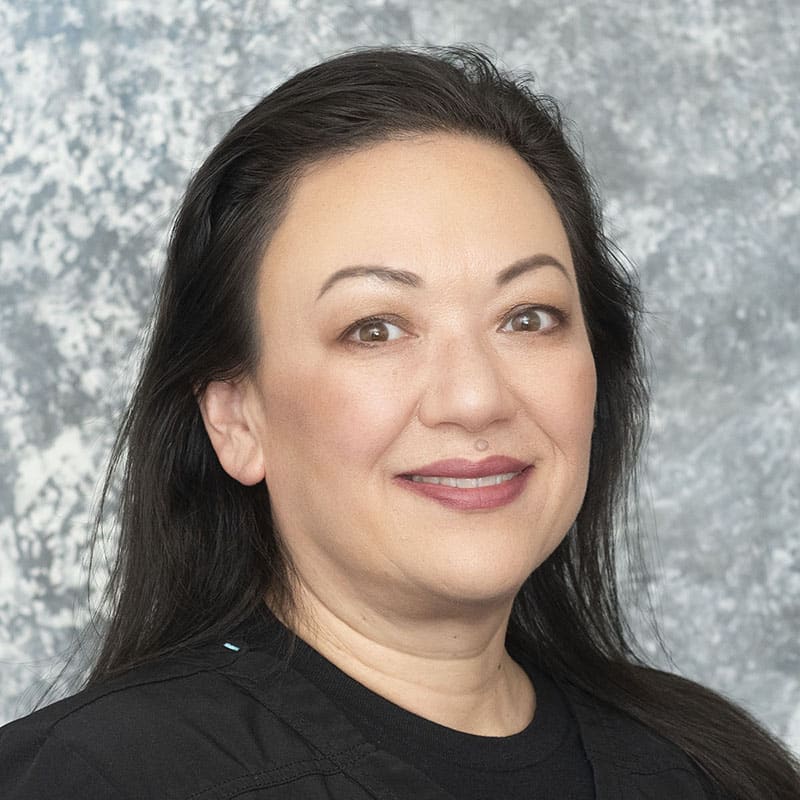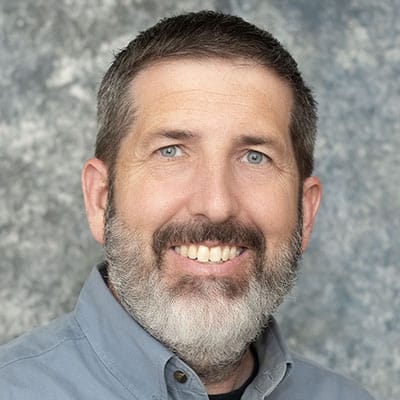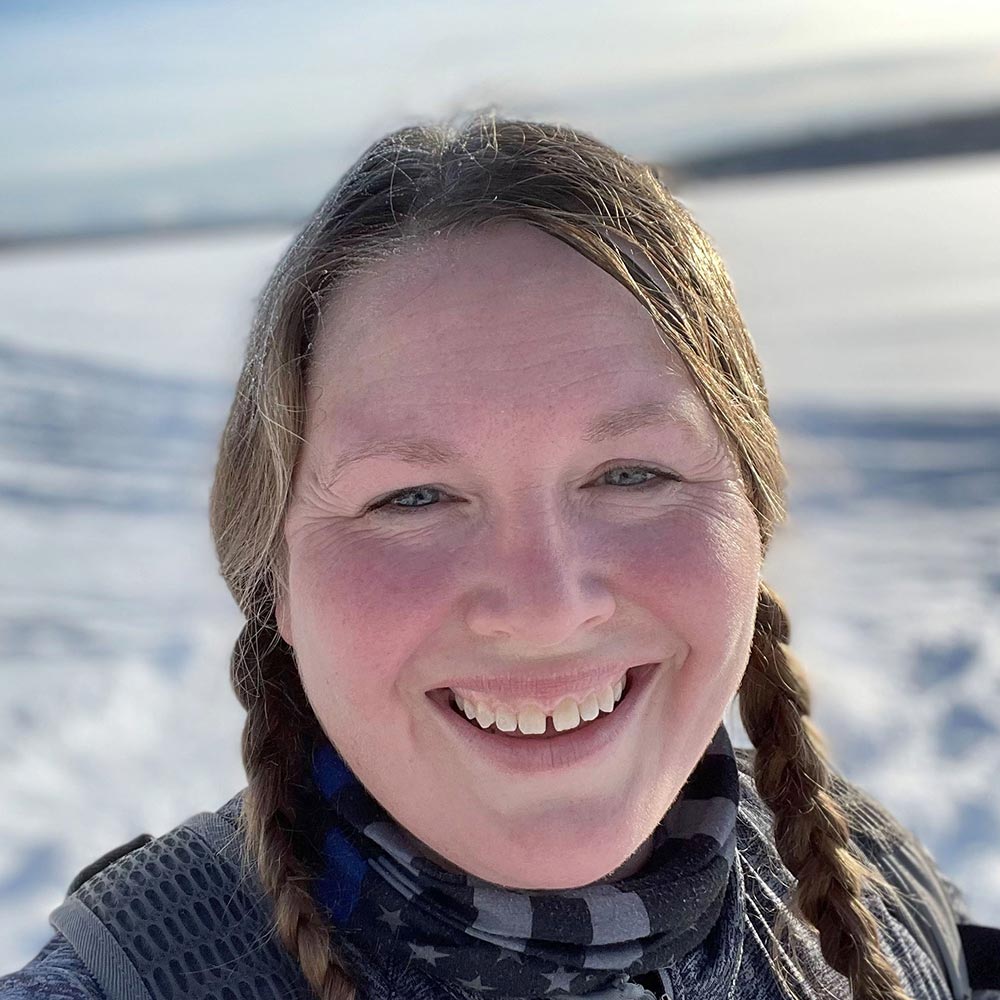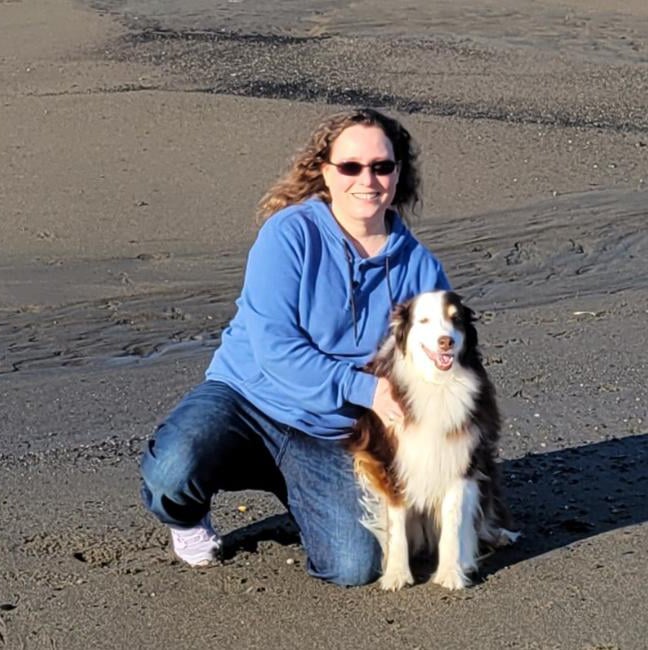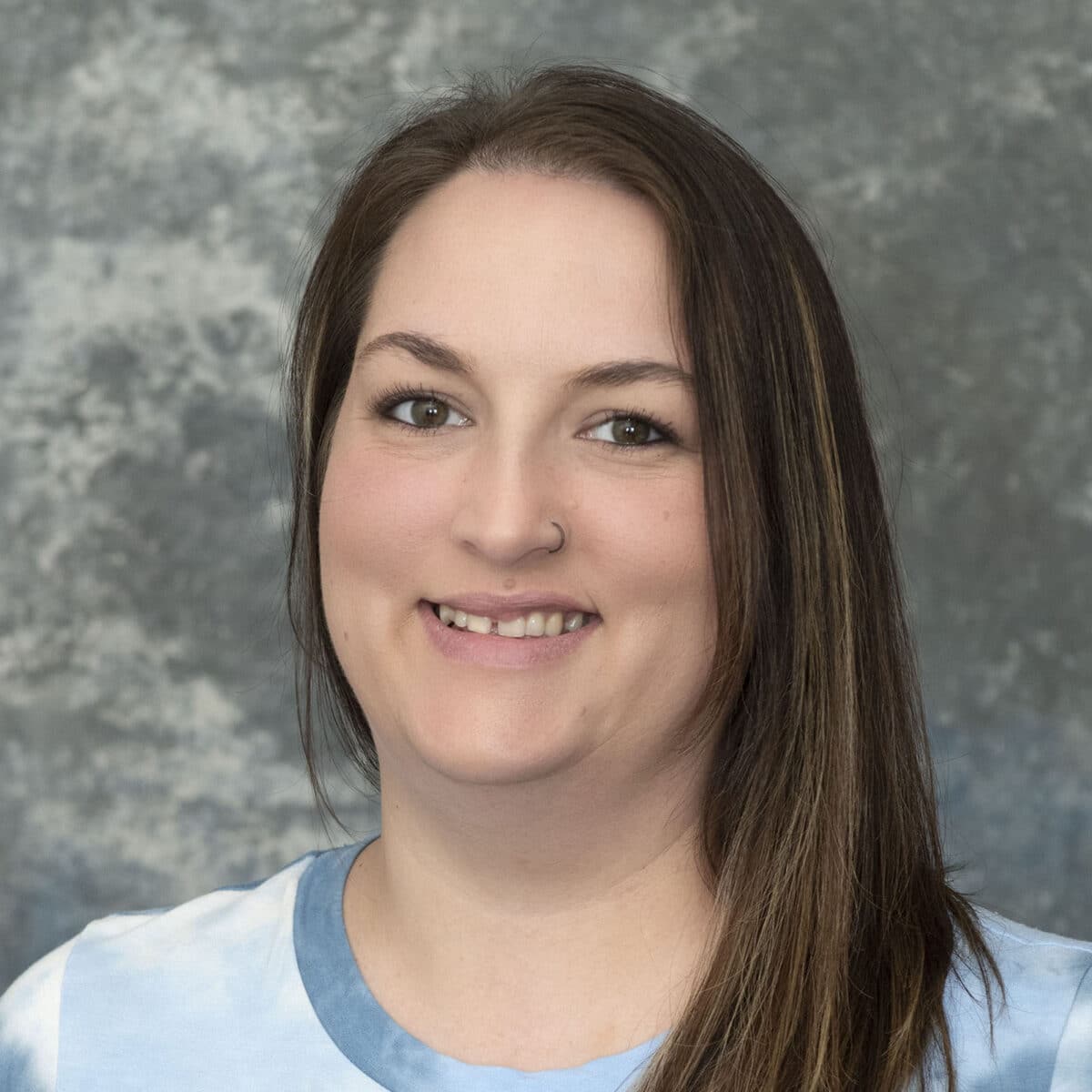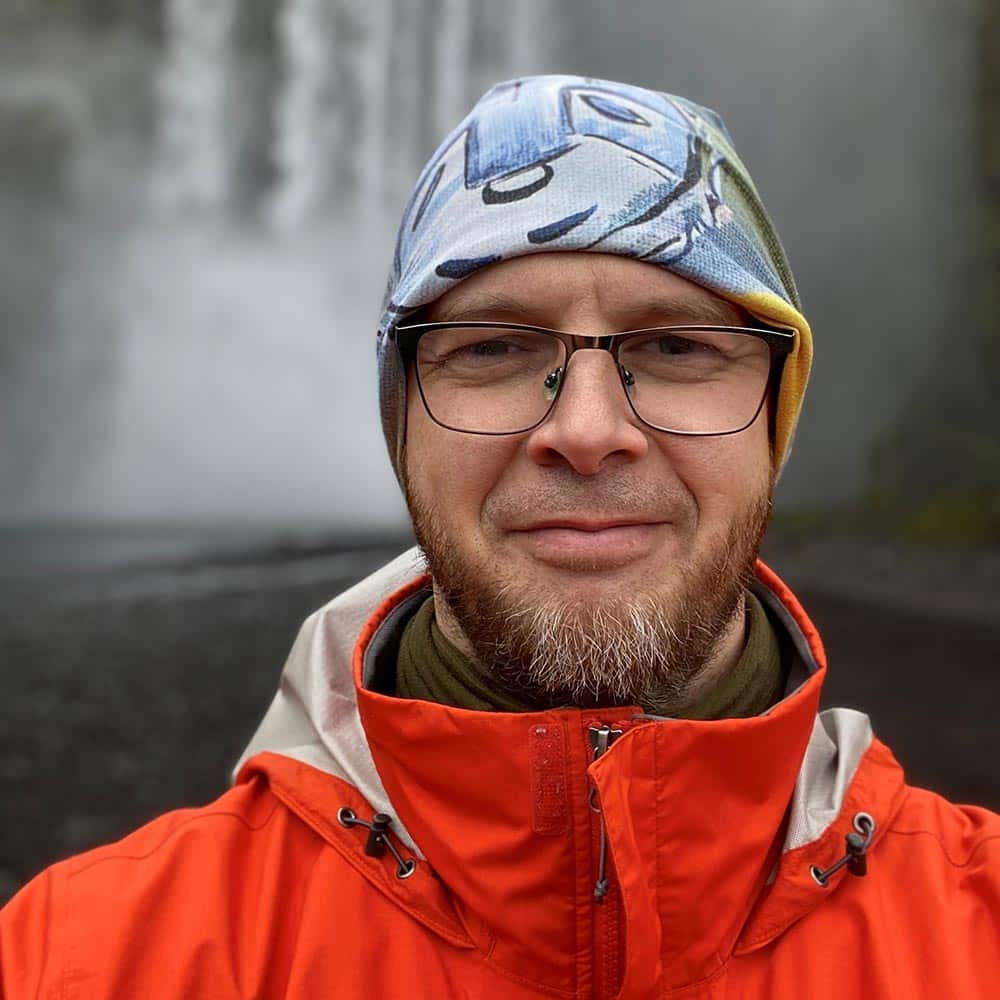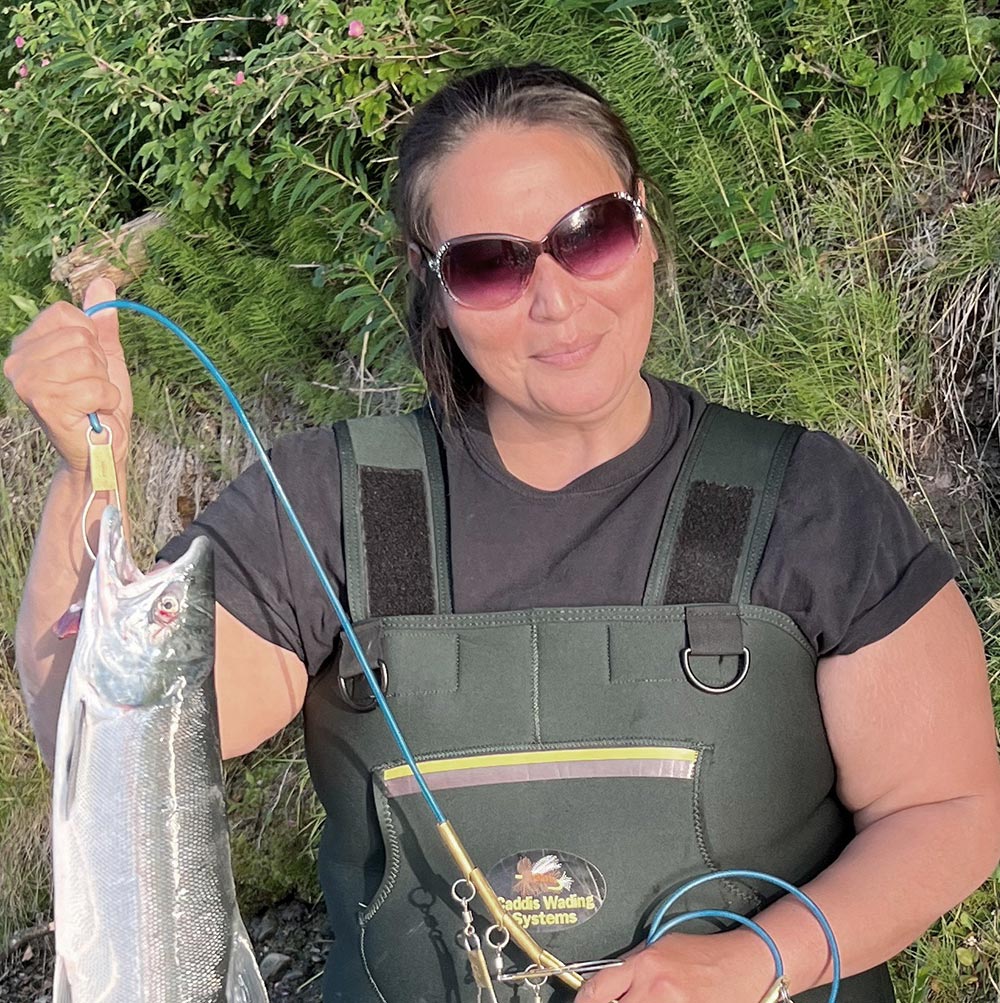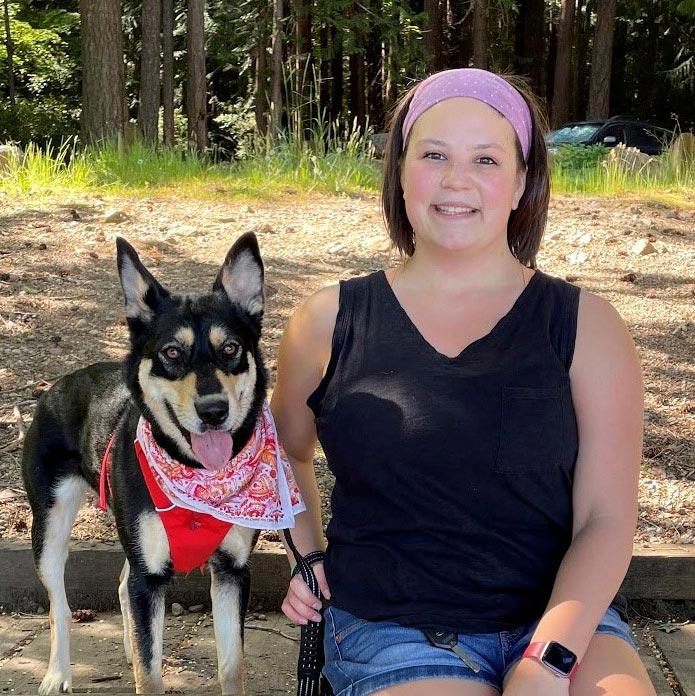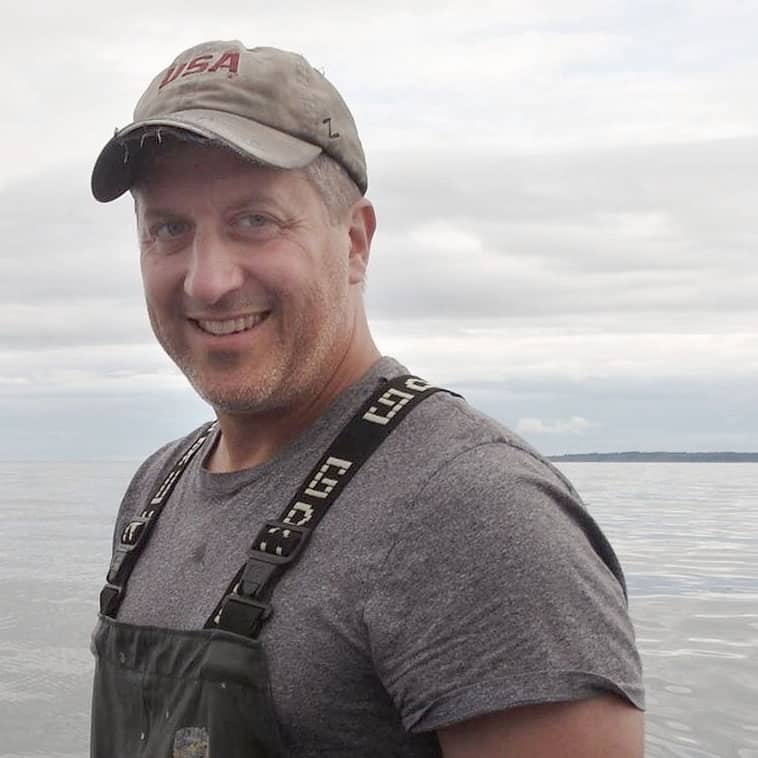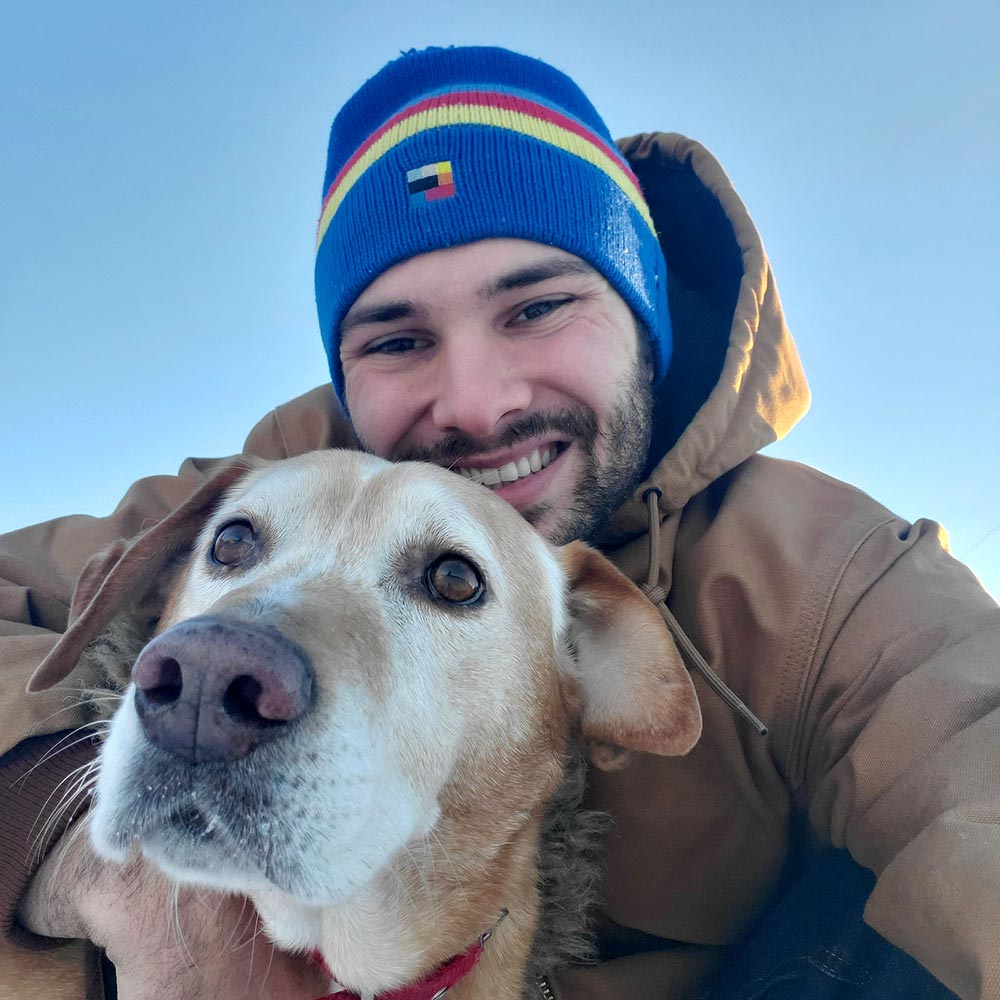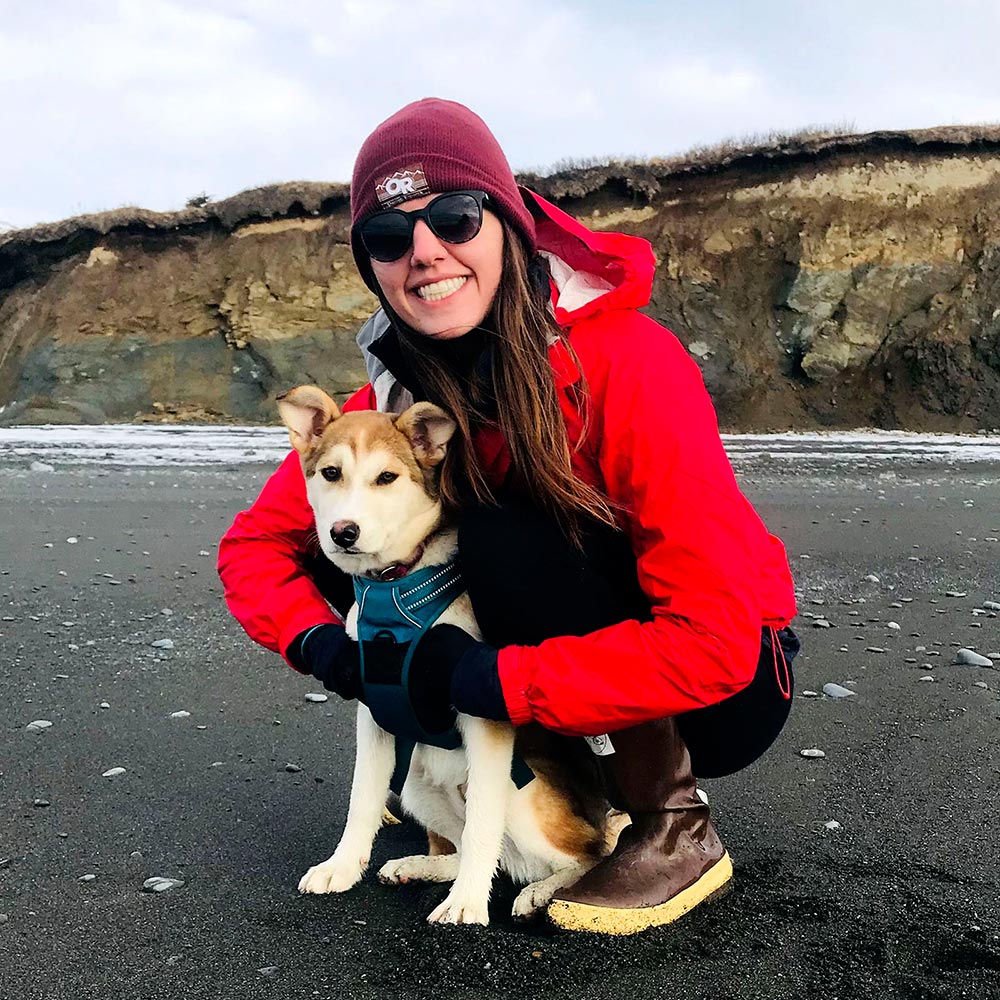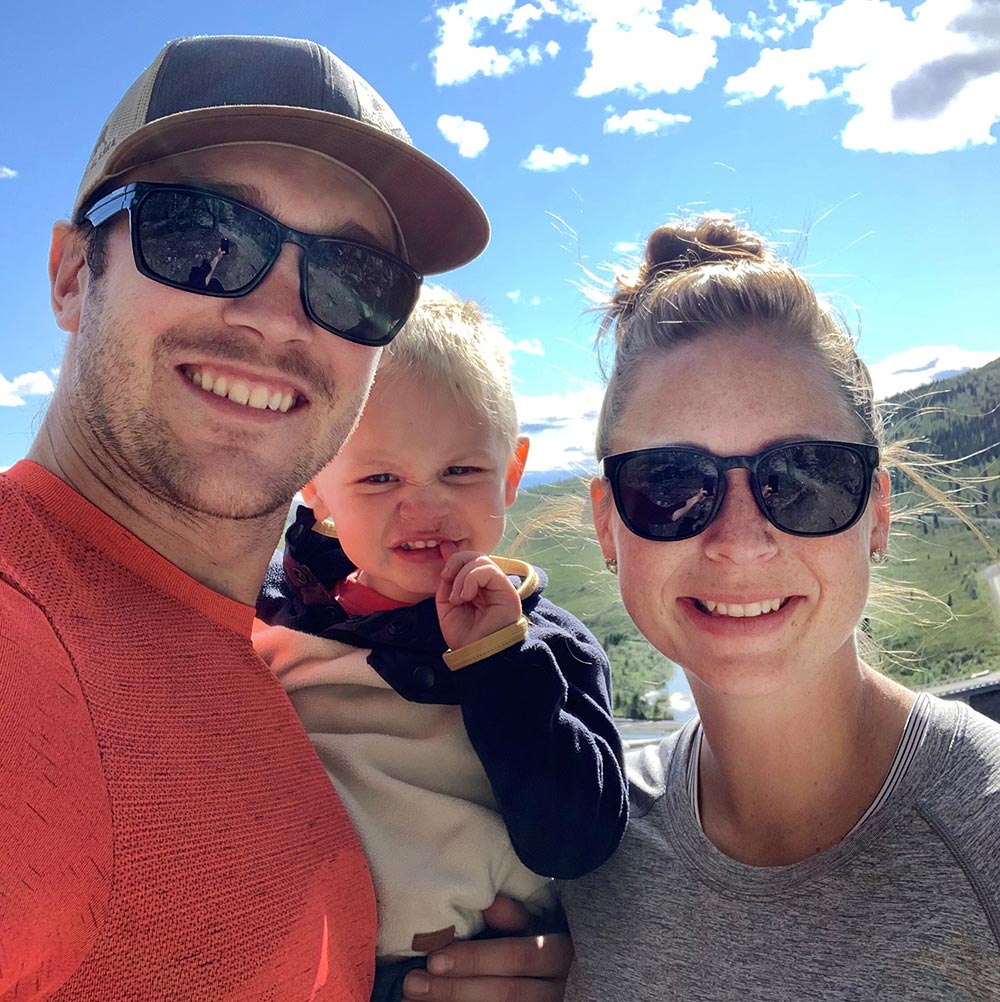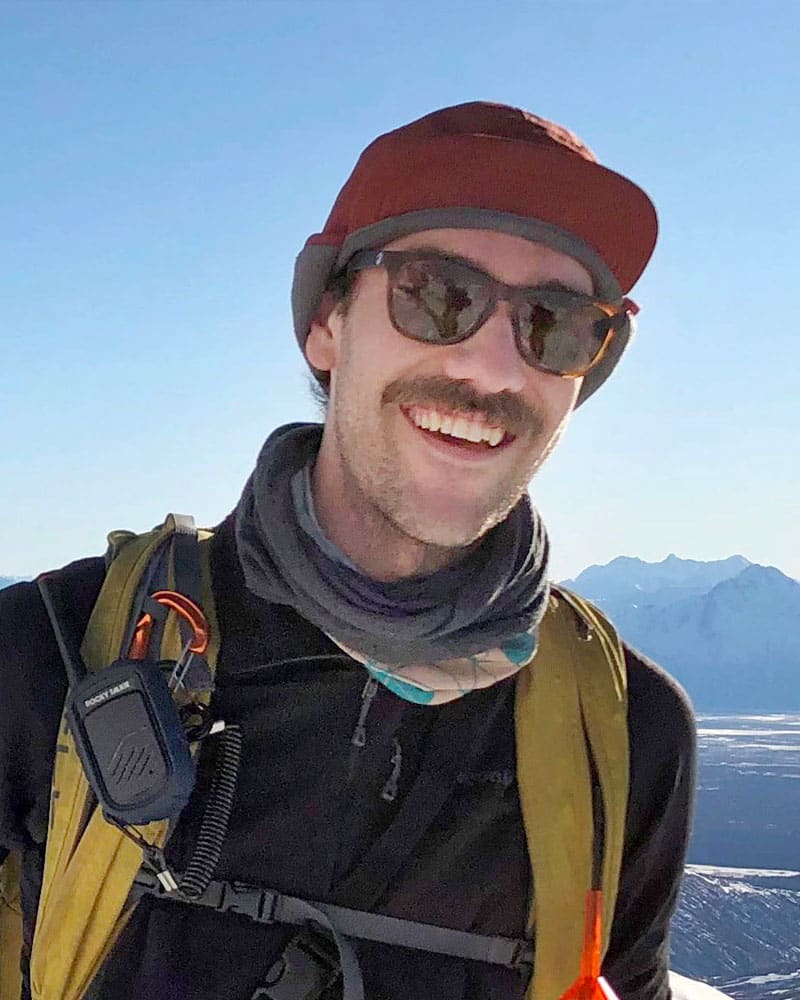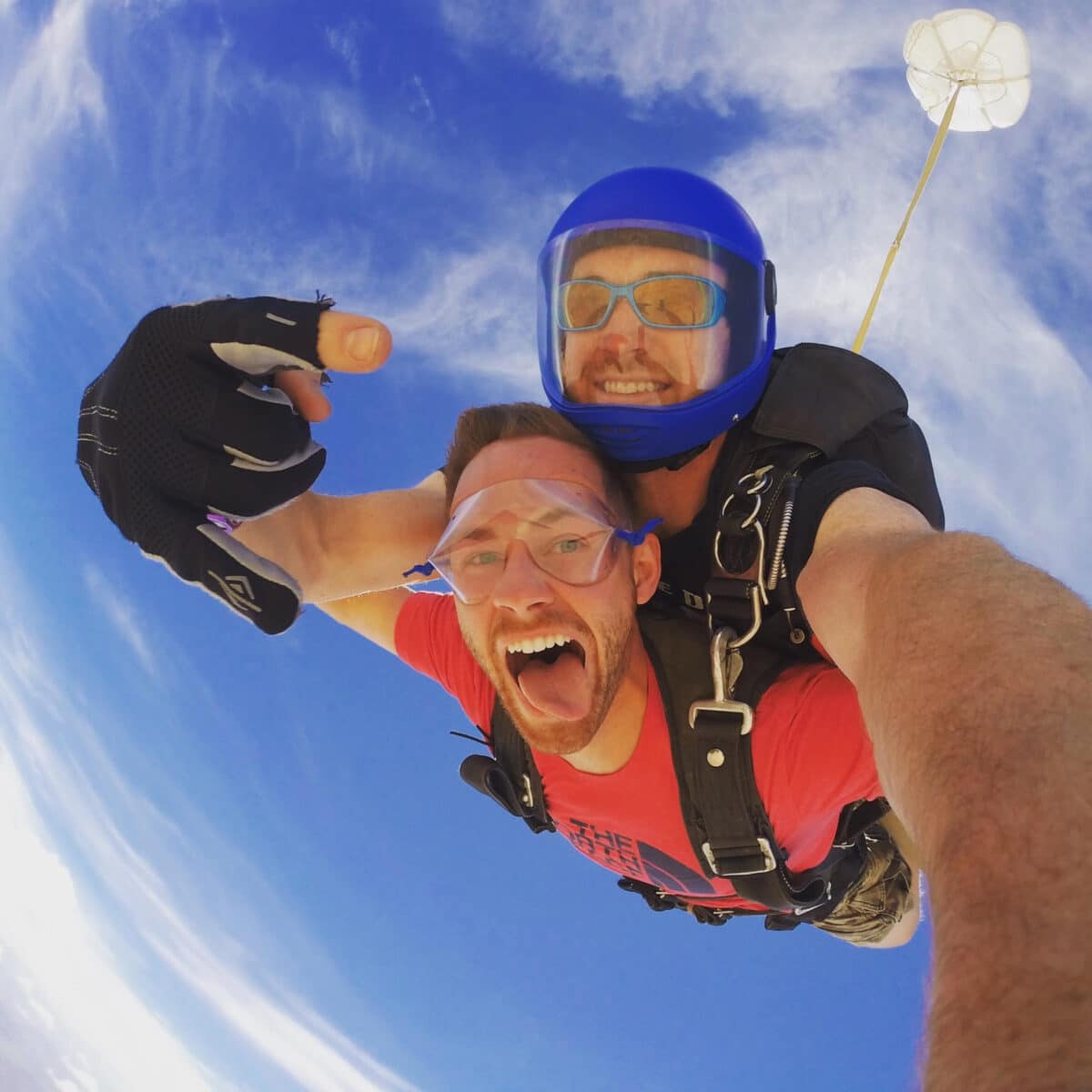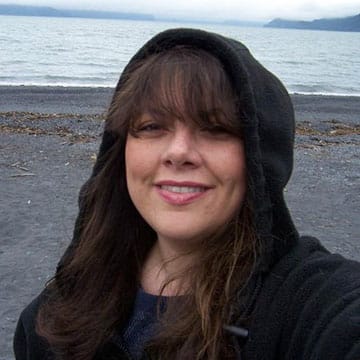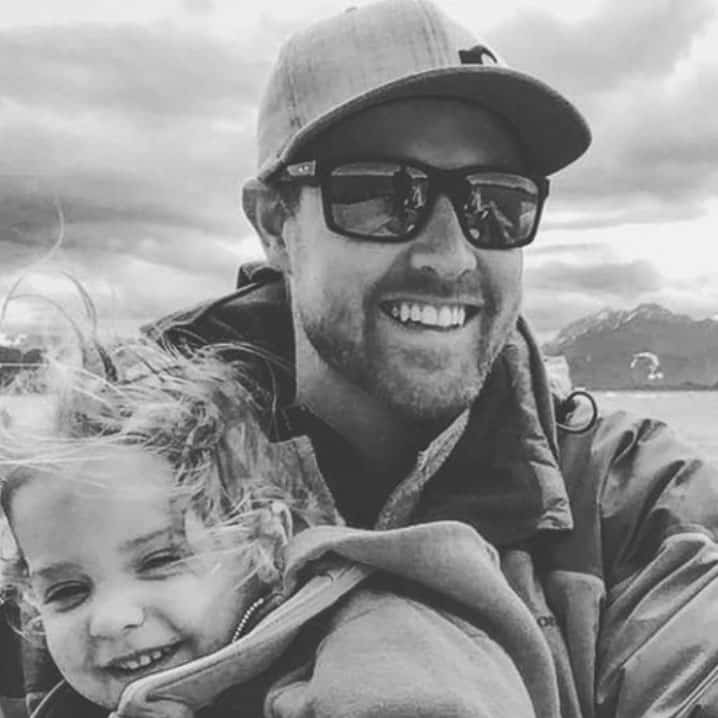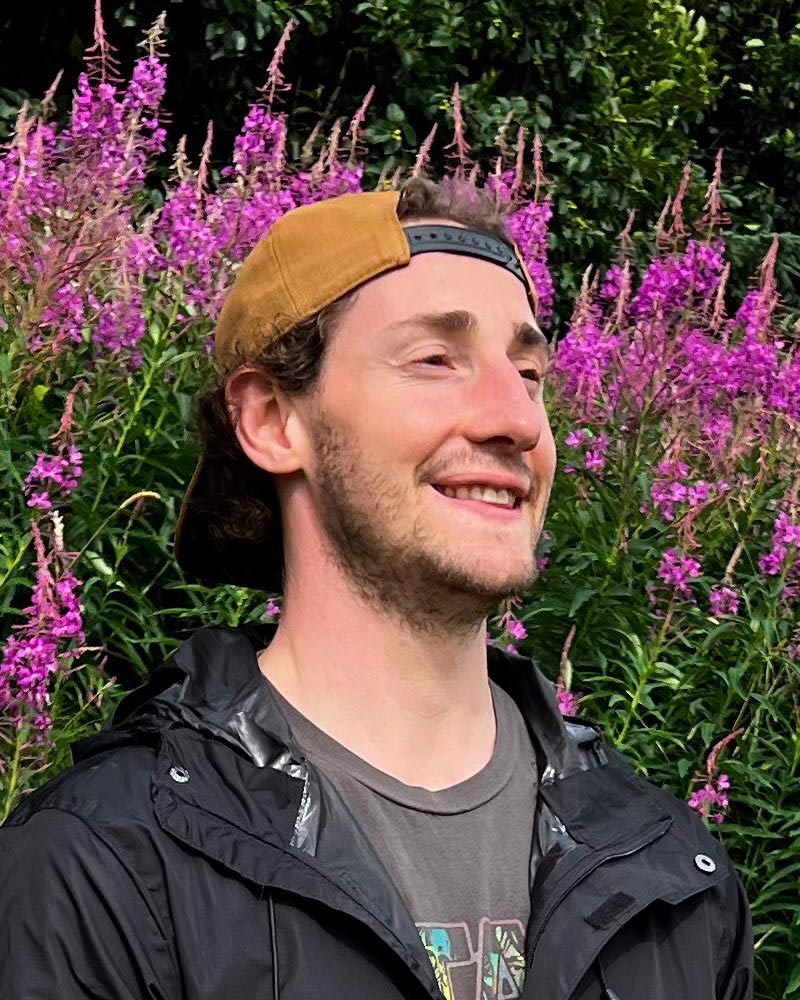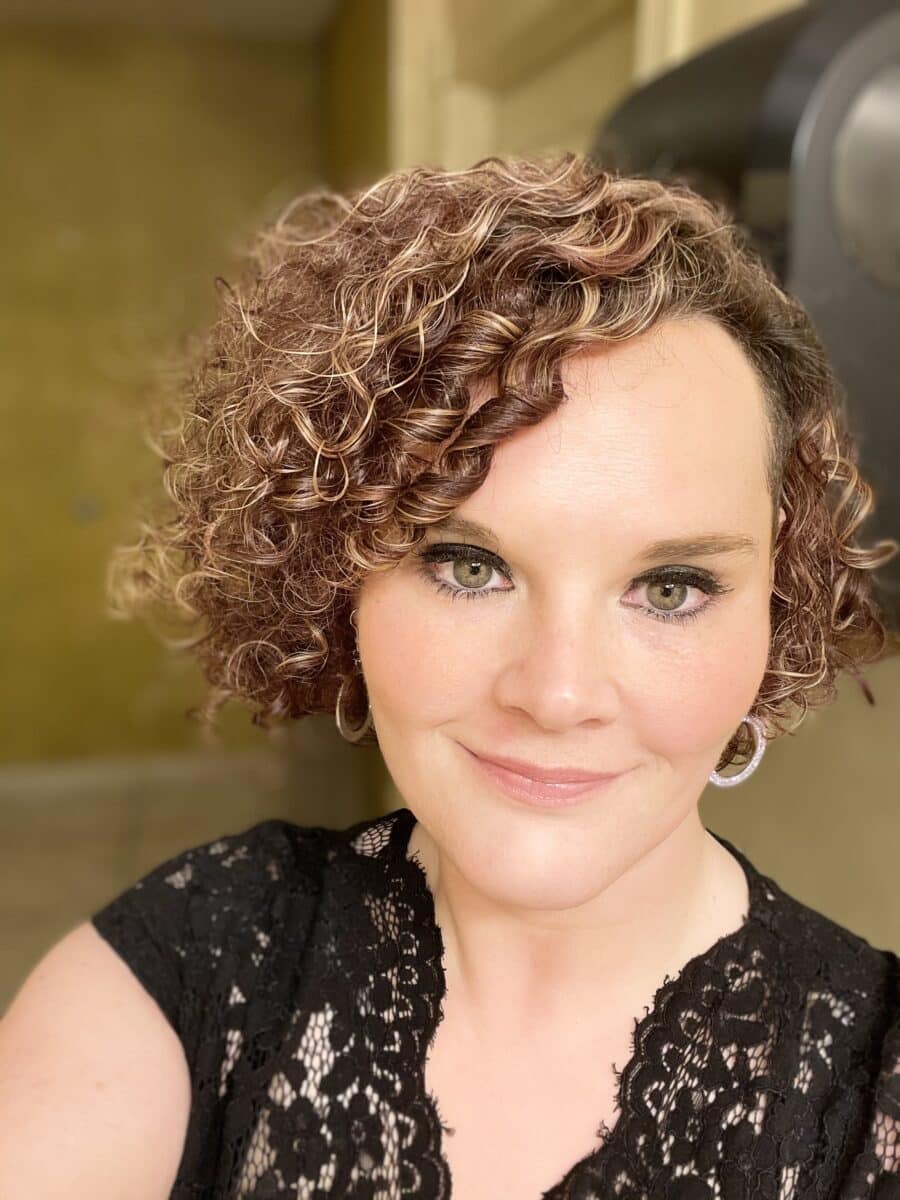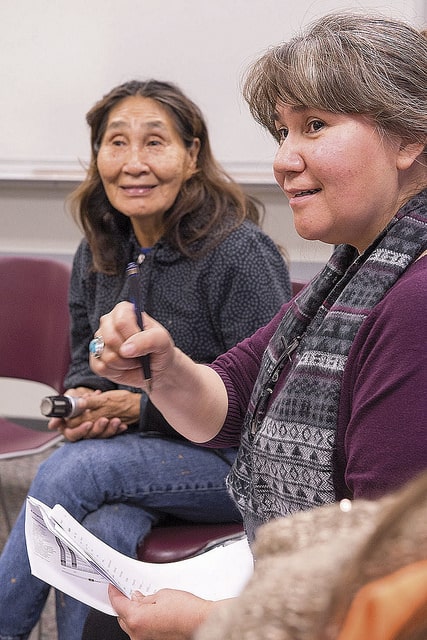
Dena’ina Elder Helen Dick and Sondra Shaginoff-Stuart co-teach the Dena’ina language class at Kenai Peninsula College.
Estelle Thomson wants to honor the people whose land she lives on. Danielle Self wants to share knowledge with her children. And Bunny Swan Gease wants to make up for lost time.
Thomson, Self and Swan Gease are participating in Kenai Peninsula College’s introductory Dena’ina language course for their own reasons. But the participants share at least one common belief – that Dena’ina, the indigenous language of the Kahtnuht’ana Dena’ina people, is important and deserves a place in the community.
“I feel that we missed out on that rich part of our lives because it was not popular to speak our language,” said Swan Gease, a tribal member who grew up knowing and speaking little Dena’ina, despite her heritage. “But now it is great.”
The course is offered through the Alaska Native Studies Program and meets Tuesday and Thursday evenings through December. With 19 students enrolled, it overviews basic listening, speaking, reading and writing skills.
In addition to teaching students the fundamentals of a complex language that has five dialects, the course aims to preserve an important part of Kahtnuht’ana Dena’ina culture.
Sandra Shaginoff-Stuart, the college’s Rural and Native Student Services Coordinator and co-instructor of the course, said there are fewer than 30 people today who speak fluent Dena’ina.
The course is a good start toward improving that number, Shaginoff-Stuart said, but there must ultimately be lifelong advocates if the language is to thrive.
“We’re hoping to find that person or group of people who is willing to make that commitment,” she said.
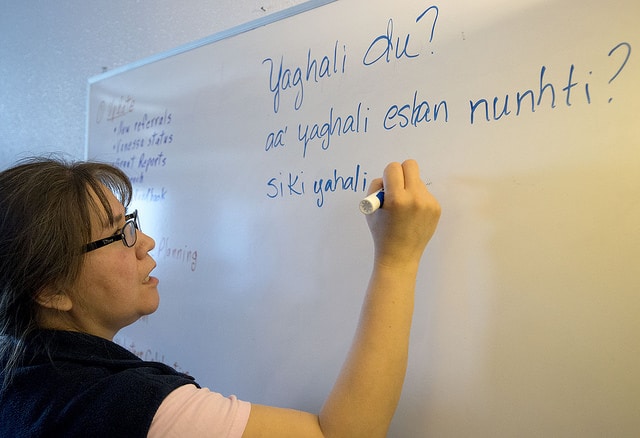
Sondra Stuart, Rural and Native Students Services Coordinator at Kenai Peninsula College, writes a Dena’ina greeting on a white board during a class at Kenaitze Indian Tribe.
During a September class, students participated in hands-on, group exercises. Co-instructor, Helen Dick, who is fluent in Dena’ina, placed objects on the floor, said them in Dena’ina and asked students to repeat the words.
After a few rounds of practice, students closed their eyes and received an object to hide under their coats or in bags on their laps. Then they took turns guessing which classmate had which object – speaking, of course, in Dena’ina.
One person had a coffee cup – “chashga.” One had a small cooking pot – “vak’edleshi” or “dudlik.” Another had a metal spoon – “lugheshga.”
Students agreed it was a helpful exercise.
“I was so excited. I said, ‘Wow, that’s a great way to learn,’” said Lucy Daniels, who works in the tribe’s Na’ini Social Services area. “It’s fun. That’s the key – it’s a fun a way to learn.”
For Maria Hargrove, who also works in Na’ini, the group approach helped reduce her anxiety of learning something new.
And it also was effective.
“I recognize them (the objects) more with these fun activities,” Hargrove said.
Thomson, who was hired by the tribe as a Traditional Healer this past spring, has studied four or five indigenous languages. She said it’s interesting to see the correlations and similarities across those languages, despite their differences.
Beyond learning, Thomson said she signed up for the course as a show of respect for the Dena’ina people.
“It is important to honor the people whose land I live on.” said Thomson, who is Yu’pik and from Hooper Bay, Alaska.
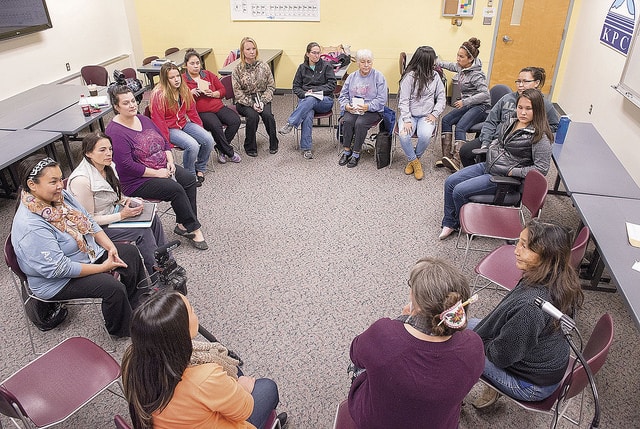
Students study Dena’ina language in a class at Kenai Peninsula College this semester taught by Sondra Shaginoff-Stuart and Helen Dick.
Meanwhile, Self, also of Na’ini, has been taking knowledge from the classroom and sharing it at home with her children. During the September course, she learned the Dena’ina words for cooking ingredients such as cranberries, sugar and cream.
Now her kids will know those words, too.
“They’ll be really excited,” Self said.
Linda Ross, who is Dena’ina, said she is sad that she never learned the language at a younger age and feels deprived.
But now, years later, she is thankful to have the opportunity.
“I’m grateful for this class,” Ross said. “It’s an honor to be here.”


